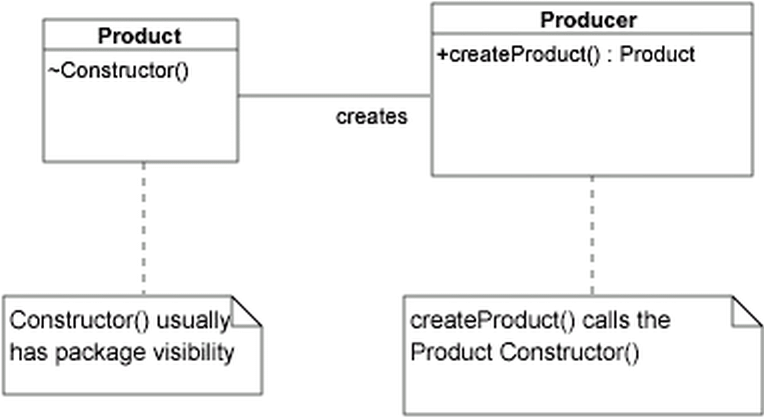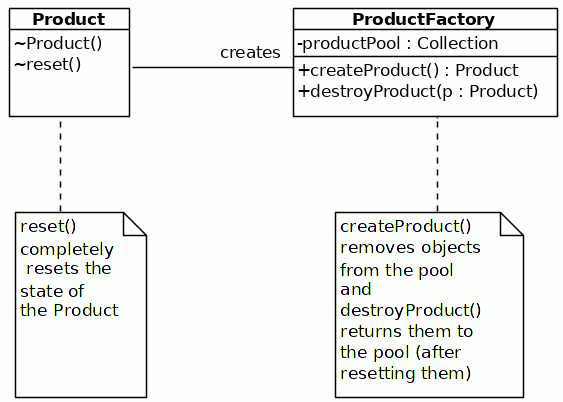|
The FactoryMethod Pattern
An Introduction with Examples in Java |
|
Prof. David Bernstein |
| Computer Science Department |
| bernstdh@jmu.edu |
|
The FactoryMethod Pattern
An Introduction with Examples in Java |
|
Prof. David Bernstein |
| Computer Science Department |
| bernstdh@jmu.edu |


import java.io.*;
import java.util.*;
/**
* An encapsulation of the contents of a directory
*
* This class is part of an example that illustrates the use of
* the FactoryMethod pattern
*
* @author Prof. David Bernstein, James Madison University
* @version 1.0
*/
public class DirectoryListing
{
private File dir;
private File[] files;
private long lastTimeCheck;
/**
* Explicit Value Constructor
*
* @param path The path to the directory
*/
DirectoryListing(String path) // package visibility
{
dir = new File(path);
lastTimeCheck = 0;
update();
}
/**
* Get the contents of this DirectoryListing
*
* @return The array of File objects (sorted by name)
*/
public File[] getContents()
{
update();
return files;
}
/**
* Update this DirectoryListing if necessary
*/
private void update()
{
long lastModified;
lastModified = dir.lastModified();
if (lastTimeCheck != lastModified)
{
lastTimeCheck = lastModified;
files = dir.listFiles();
Arrays.sort(files);
}
}
}
import java.util.*;
/**
* A factory that creates DirectoryListing objects
*
* This class is part of an example that illustrates the use of
* the FactoryMethod pattern.
*
* @author Prof. David Bernstein, James Madison University
* @version 1.0
*/
public class DirectoryListingFactory
{
private Map<String,DirectoryListing> pool;
/**
* Default Constructor
*/
public DirectoryListingFactory()
{
pool = new HashMap<String,DirectoryListing>();
}
/**
* Create a DirectoryListing object
*
* Because DirectoryListing objects are expensive to create,
* this method may return an existing DirectoryListing object
* if one exists
*
* @param path The path to the directory
* @return The DirectoryListing
*/
public DirectoryListing createDirectoryListing(String path)
{
DirectoryListing dl;
dl = pool.get(path);
if (dl == null)
{
dl = new DirectoryListing(path);
pool.put(path, dl);
}
return dl;
}
}